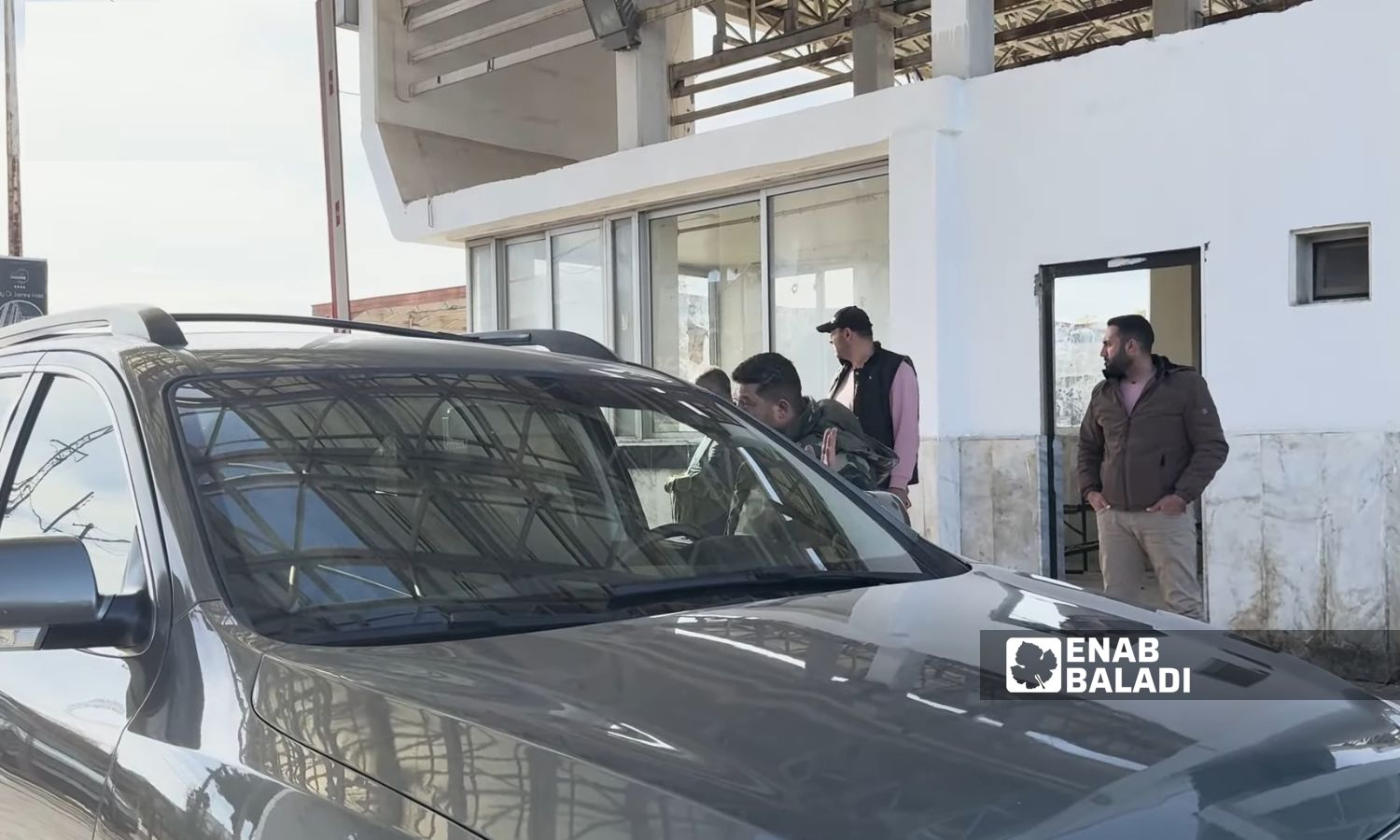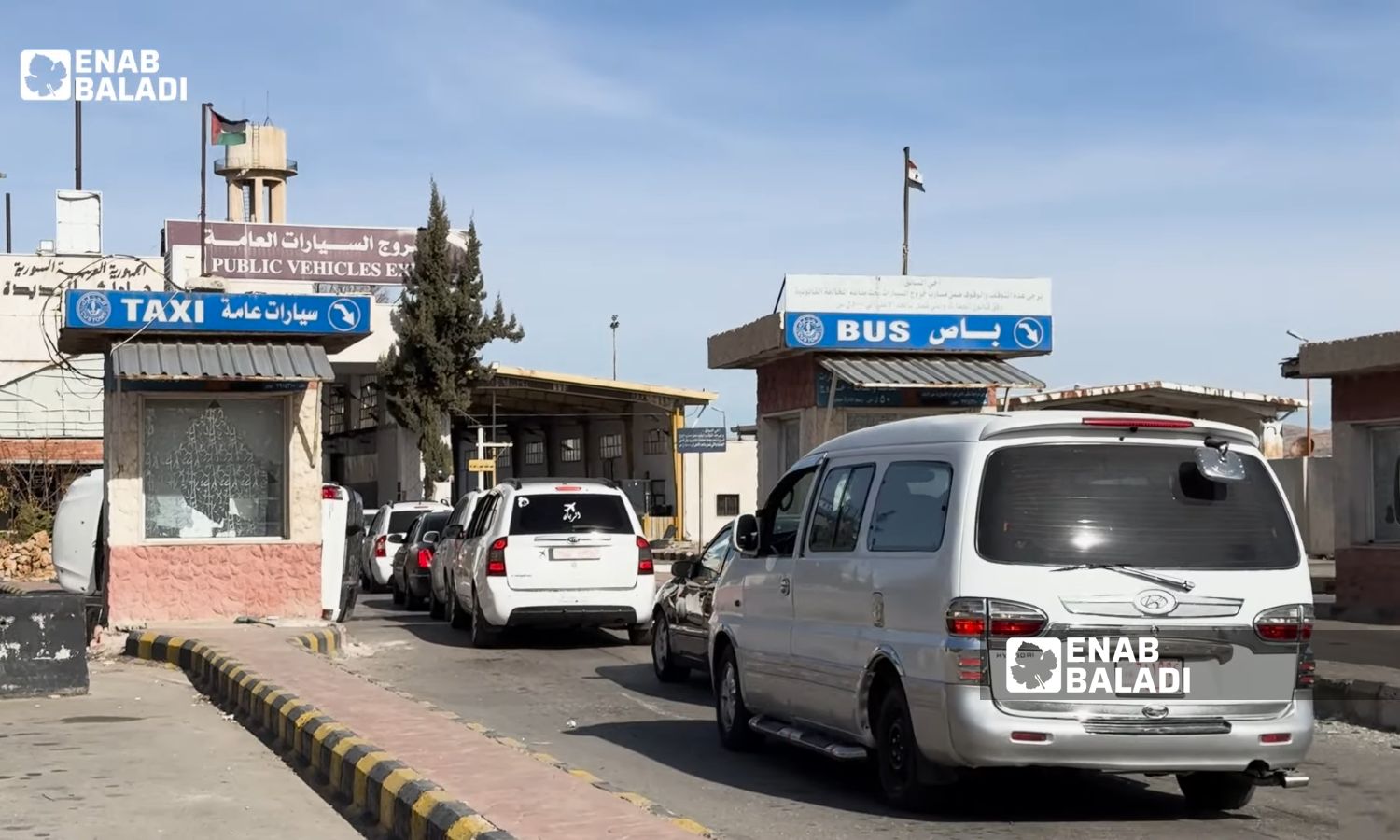



Syrian authorities have begun implementing a decision to prevent Lebanese citizens without a Syrian residency document from entering, in response to Lebanon’s treatment regarding the entry of Syrians.
Lebanese media reported today, Friday, January 3, that the Lebanese General Security has stopped allowing Lebanese citizens to cross into Syria based on recommendations from Syria, except for those holding Syrian residency documents.
The decision applies to all border crossings in the Bekaa region in eastern Lebanon, as well as the northern crossings in al-Arida, al-Aboudiya, and Qamar Bridge.
This decision from the Syrian side is a response to similar Lebanese measures that prohibit the entry of Syrians who do not meet the Lebanese conditions, the most notable being a valid Lebanese residency, according to what was reported by the Lebanese Annahar newspaper.
The American Al-Hurra TV channel cited an unnamed Lebanese security source stating that the Lebanese General Security has advised citizens against going to Syria, as Lebanese nationals have been recently sent back from Syria to their country.
The source added that “the General Security was surprised by this step,” noting that explaining the reasons behind this decision “is up to the Syrian side.”
Enab Baladi contacted the caretaker government of Damascus to verify the accuracy of the decision and its details but did not receive a response by the time of publishing this news.
After the fall of the Syrian regime and Bashar al-Assad fleeing to Russia on December 8, 2024, the caretaker government of Damascus took control of the border crossings with Lebanon.
According to Enab Baladi‘s monitoring in the first week after the regime’s fall, there were no obstacles or conditions for entering and exiting through the crossings, and the process was smooth without routine procedures, such as entry and exit stamps.
The Military Operations Administration forces were conducting vehicle inspections at the border crossings, amidst normal movement without congestion.
On January 2, the United Nations High Commissioner for Refugees (UNHCR) reported that more than 115,000 Syrians had returned from Turkey, Lebanon, and Jordan to their country following the ousting of Bashar al-Assad’s regime.
It mentioned that the number of Syrians leaving Lebanon through official border crossings remains “low but stable,” and return trips usually take place via the Masnaa crossing, involving people who may be taking short trips to assess the situation in Syria.
The UNHCR noted that over the past ten days, there have been up to 100 to 200 people at the buffer zone at any given time, either in the process of entering Lebanon or returning to Syria.

Cars entering Syria from Lebanon via the Masnaa border crossing – December 2024 (Enab Baladi/Dayan Junpaz)
For her part, the head of the International Organization for Migration (IOM), Amy Pope, warned on December 20, 2024, that the large-scale return of refugees could fuel conflict in Syria.
She pointed to expectations of the return of one million refugees during the first half of 2025, according to Reuters.
Lebanon handed over to the Damascus caretaker government dozens of soldiers and officers from Bashar al-Assad’s regime who fled to Lebanon after the fall of the regime.
Reuters reported, citing a security source, that on December 28, 2024, Lebanon returned 70 soldiers and officers after entering its territory illegally through smuggling routes.
if you think the article contain wrong information or you have additional details Send Correction